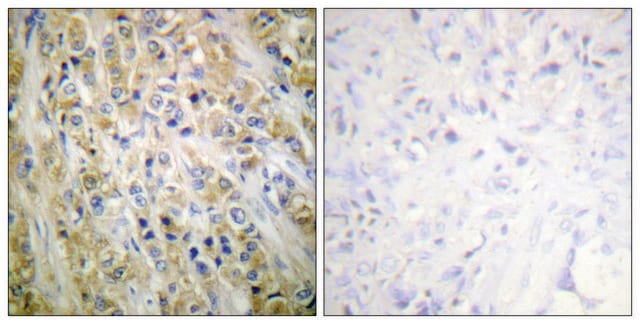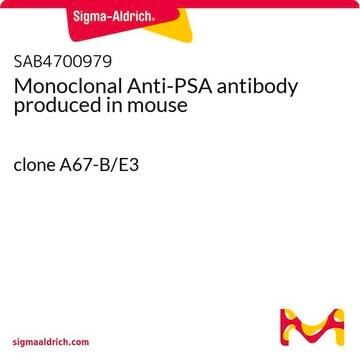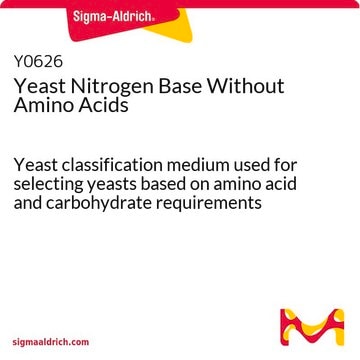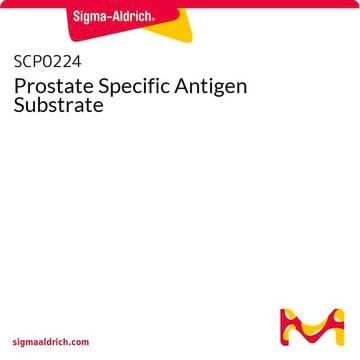P3235
Prostate Specific Antigen from human semen
buffered aqueous solution
Synonyme(s) :
Cancer-associated PSA, PSA
Sélectionner une taille de conditionnement
283,00 €
Sélectionner une taille de conditionnement
About This Item
283,00 €
Produits recommandés
Source biologique
human semen
Niveau de qualité
Essai
≥99% (SDS-GE)
Forme
buffered aqueous solution
Numéro d'accès UniProt
Conditions d'expédition
wet ice
Température de stockage
−20°C
Informations sur le gène
human ... KLK3(354)
Vous recherchez des produits similaires ? Visite Guide de comparaison des produits
Description générale
Actions biochimiques/physiologiques
Forme physique
Code de la classe de stockage
11 - Combustible Solids
Classe de danger pour l'eau (WGK)
WGK 3
Point d'éclair (°F)
Not applicable
Point d'éclair (°C)
Not applicable
Faites votre choix parmi les versions les plus récentes :
Certificats d'analyse (COA)
Vous ne trouvez pas la bonne version ?
Si vous avez besoin d'une version particulière, vous pouvez rechercher un certificat spécifique par le numéro de lot.
Déjà en possession de ce produit ?
Retrouvez la documentation relative aux produits que vous avez récemment achetés dans la Bibliothèque de documents.
Les clients ont également consulté
Active Filters
Notre équipe de scientifiques dispose d'une expérience dans tous les secteurs de la recherche, notamment en sciences de la vie, science des matériaux, synthèse chimique, chromatographie, analyse et dans de nombreux autres domaines..
Contacter notre Service technique









